#fool4fool
Photo

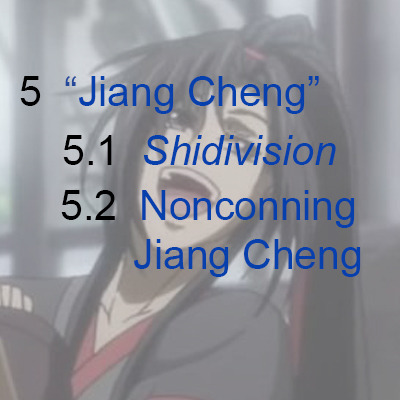

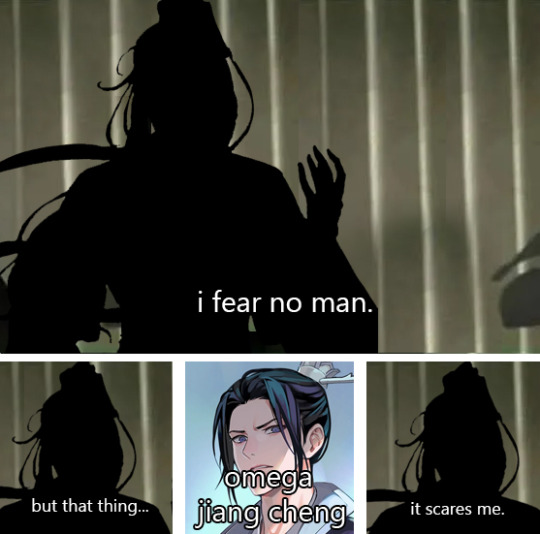

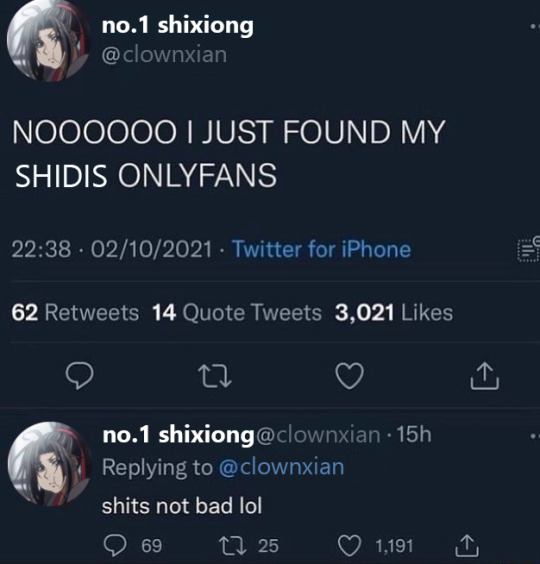


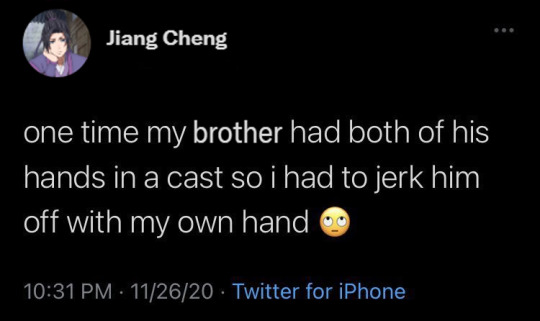
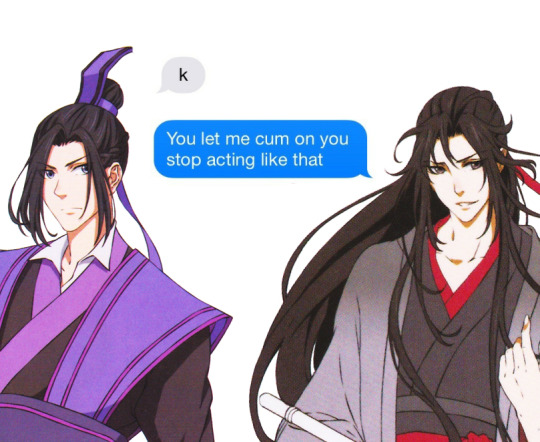
cursed chengxian memes for the soul
#a small collection of the atrocities ive created#im sorry#chengxian#mdzs#jiang cheng#wei wuxian#but wait#theres more#xiancheng#fool4fool#let jc rest for a moment please#pls dont take any of these seriously
222 notes
·
View notes
Text
hamlet/horatio is rly some of the most boring shakespeare yaoi in my honest opinion. like even putting aside whatever i got going on with iago/cassio and edgar/albany (my problematic favs) there’s also like. toxic caesar death polycule. the undeniable potency of antonio/sebastian. the kind of epic fool4fool slay that is touchstone/jaques. rosalind/celia yuri. olivia/viola also. and these are just off the top of my head
22 notes
·
View notes
Text
2022 in Books
Happy new year! I play faster and looser with this list every time, but 42 books -> 6 favorites -> 7 almost-favorites and/or honorable mentions. Tumblr doesn’t lend itself very well to forum discussions that aren’t ‘fandomized’ in some way, so know I’m always down to answer questions, go into more detail, talk about other books, or exchange recommendations. With that let’s dig in, listed by reading order not merit.
The Department of Historical Corrections by Danielle Evans
At least I am having a twenties, I thought, though my twenties, which I’d treated with a cast-down-your-bucket-where-you-are approach, had thus far only brought me a string of men who were all very sad about some quality in themselves that they had no intention of making any effort to change.
Quality varies so much in anthologies that I tend to dwell on the misfires over successes and end up disliking them, but that wasn’t a problem here. Evans’ writing style instantly clicked for me; prosaic but still very beautiful, with short sentences and run-ons taking turns. I also think it’s interesting (read: annoying and predictable) that summaries and reviews say that this is a collection ‘about race’ when so many of her stories are reflections on everyday life. My favorite was Why Won't Women Just Say What They Want, about a visual artist who sets out to make amends to every girl he’s ever wronged, with close runners-up being Richard Of York Gave Battle In Vain (about a wedding reception) and Alcatraz (about a family reunion.)
Emma by Jane Austen
Human nature is so well disposed towards those who are in interesting situations, that a young person who either marries or dies, is sure to be spoken kindly of.
I like Emma so much it’s a little embarrassing. It’s the most conservative story I think I have ever or will ever enjoy, about small town drama resolved by maintaining the status quo, and I’d love to do a deep-dive comparison between adaptations because the appeal is all in the third person limited narration. The book is funny and smart and dumb and overly-descriptive and frivolous and mean and full of word games because Emma herself is and likes those things; the intro of the edition I borrowed calls it a ‘dramatization of self-knowledge,’ pointing out that the dialogue is so memorable and idiosyncratic because characters are speaking in the way other people hear them, rather than how they sound to themselves! To take one example it’s difficult to write a guy who has a surface-level standoffish ‘doesn’t suffer fools gladly’ attitude but is fool4fool (many romcoms have tried and failed), but as someone. um. in that demographic. Knightley works.
Savage Feast by Boris Fishman
I can make myself work at my writing for many more hours than I want to. I can make myself rise when all I want is to lie on the floor. I can make myself charm almost anyone, especially if it means they can give me something I want. But I can’t make myself stop eating so quickly. I can’t make myself stop eating even though I am full. It’s too good. And I am too hungry.
Well Mr. Fishman thanks for getting me to fall in love with you with that paragraph. Unlike someone writing a memoir just because they have the ability to write access to the publishing industry + memories, Fishman has a rare knack for storytelling that makes it feel like whatever he says next is worth hearing. He uses in-text recipes to frame his family’s move from the USSR to the United States as continuous event, his tactile descriptions are incredible (“…a zinc-grey pot embossed with factory and model identifications that made it feel like a part of some engine. The lid closed over the rim with a distinctive, plaintive peal that rolled all through the house...”), and grappling with emotions without coming to any real conclusions is honestly a novelty for the genre. He of all people could romanticize Eastern Europe and doesn’t- is instead up front about returning and feeling some of the completeness he expected, but also the disillusionment and smallness of childhood nostalgia, and, more practically, antisemitism. Describing the beautiful view from a friend’s guest room, “maybe I could feel what I felt because I could leave.”
And the Band Played On by Randy Shilts
It had become a verb which needed no object.
Journalists have a lot of trouble balancing objectivity with their own opinions and emotions, and usually just opt for one or the other. Shilts is maybe the rarest gem in the world for achieving such a balancing act, and this is maybe the best nonfiction book ever written. His research into as many sides of the global AIDS crisis as possible, the creation of a timeline from the late 70s up to publication in ‘87, and his concise, thoughtful writing style are unmatched. I couldn’t highlight the edition I was using so ended up taking notes just because everything felt so relevant. In the early 80s The University of California wouldn’t buy a $1,500 filter for their infectious disease lab and was too proud to accept government help. One researcher (Levy) asked the government anyway and got it, but it set his research back six months. “In politics the players jockey for power, in academia, they play for vanity, a far more compelling instinct that could conjure far more vindictive punishment.”
It’s always by turns comforting and deeply painful to me that so little has changed within the LGBT+ community over time. The slowness with which progressives actually managed to accomplish anything, infighting over everything from personal health responsibility to PC language, and the stark differences between gays living in the extremely politically and socially active West Coast and the didactic ‘old school’ East Coast were fascinating to read about. Felt far too relevant in 2022.
A Touch of Jen by Beth Morgan
Another @actuary-tattoo rec that was so catered to what I like in a novel it’s a little scary. Third person limited narration, short, clever sentences, a horror story that feels like three different books it changes plot and tone so dramatically, and a perfect, brilliant ending that ties everything together and resolves none of it. Also not a premise I would’ve sought out on my own, about 20-somethings Remy and Alicia becoming obsessed with Remy’s ex-girlfriend trough Instagram. Takedowns of affluent urban millennials and ‘the social media generation’ have always felt disingenuous to me, because either the self-insert character is just as well-off as their peers but inexplicably better than them, or the self-insert is a put-upon impoverished outsider.. with likewise unquestioned moral superiority and no earthly desires. Authors and filmmakers frame themselves as holier-than-thou observers when they should be using their participation in these groups to their advantage! Morgan explores the emotional toll of the East Coast social scene and then doesn’t excuse it. Her descriptions of anxiety and small talk and playing the game are the best I’ve ever read, and it was refreshing to have two horrible protagonists so complicit and so needy in that setup. I know them, I love them, I’m terrified for them.
Times Square Red, Times Square Blue by Samuel ‘Chip’ Delaney
Two essays, Times Square Blue a reflection on how NYC had changed in the 1990s through explicit descriptions of Delaney’s time at porn theaters in the 70s and 80s, and Red composed of lectures, notes, and diary entries advocating for cross-class and cross-cultural contact in everyday spaces. In a profit-driven world networking is becoming the only option for social contact, as places to encounter one another naturally, or even just be in cities are actively destroyed with ‘no loitering’ signs and buildings you can’t set foot in without a wallet. Safety concerns are often cited as the motivation behind these changes, but urban planning decisions like moving sex businesses away from walkable streets, into areas only accessible by car and surrounded by other ‘seedy’ businesses instead of residences, parks, or offices make them isolated and even more unsafe for everyone. The Times Square of the 90s was already becoming a Times Square dedicated to the vague idea of tourists in need of fun, the vague idea of (wealthy, white) women in need of protection, and the vague idea of U.S. citizens in need of ‘a good neighborhood’ over the needs of the real people living and working there.
Runners Up/Honorable Mentions
Broken Harbor by Tana French
The friend who got me hooked on French books hasn’t read this one, but pointed out that the reason she likes them is because they’re like if Criminal Minds was good. I don’t usually delve into plot with these reviews, but since my love was entirely driven by it I’ll spoil a little here. A nuclear family are found killed in their suburban home with no motive and too many suspects, but the most puzzling aspect of the case is that the house is riddled with holes. The father was trying to catch some sort of beast he was certain was living in the walls, probably (probably?!) the product of carbon monoxide poisoning, which both symbolically and literally drove the family into bankruptcy, social shame, and a brutal death. As a commentary I found it really striking (made even more so by French’s often unkind depictions of the working class; queen of lack of self-awareness), and I love that the B plot is structured around the setup of ‘older by-the-book cop takes younger loose-cannon cop under his wing’ but with realistic, disastrous consequences on both sides. The originality and the deliciously creepy ambiguity have stuck with me; some scenes are straight out of a nightmare.
This Thing Between Us by Gus Moreno
Rare to find something so skillfully written and genuinely scary in the horror genre. Like A Touch of Jen it shifts focus and feels divided into three different books, the first a meditation on hauntings and the second reminiscent of a violent Stephen King story, but it really lost me in the last third. Frustrating in a way that only made me want to discuss it more, I’ll definitely look for anything Moreno writes in the future. He has my attention.
Crime and Punishment by Fyodor Dostoevsky
Easy to see why this has become a college staple; helpful as a literary reference point, but also just a hell of an interesting story with some choice dialogue. It only gets a mention because I will always prefer and advocate for The Idiot, which reworks similar themes and characters to much more melodramatic and touching effect.
The Fisherman by John Langran
If you like cosmic folk horror this is a must-read, with some of the best trope subversions I’ve run into and an intelligent, patient writing style. The ending lost me a little bit, but I am so into the idea of a meditation on grief told through the lens of a distorted, monstrous fishing story! Two working class men waiting out bad weather at a roadside diner are warned about ‘the one that got away,’ and go to seek it for themselves.
Awful Hospital by Jonathan Wojcik
I haven’t read a webcomic since I was in early college, never really been my preferred medium, but man is AH good. As a sci-fi horror action historical tragedy romantic comedy board book finger puppet comic it’s much more nuanced and kind with its moral philosophy than a lot of ‘great literature’ I’ve read. I was hesitant to include it on the list because it’s not a completed work or even really a book, but why not let it be a prefect little anomaly, just like the thing itself.
The High Crusade by Poul Anderson
This was so fun! A serialized magazine story about aliens landing in feudal England and being unprepared for villagers physically beating the shit out of them and stealing their spaceship to go fight the French. Brought me back to being a kid staying up past my bedtime to read weird garbage, only this one was incredibly well-written, framed as an account transcribed by the village clergyman (the only literate crew member, natch), and given lots of excellent drama and conundrums.
Jane Eyre by Charlotte Brontë
Like watching a train wreck (complimentary.) Everything on earth happens to this 18-year-old, and I’m delighted that it’s being taught in schools since it has as much to say about writing and English social history as it does being a lovelorn teenager. I also much prefer Charlotte’s writing style to her sister Emily’s; was finally getting that ‘rawness’ everyone always claims is in Wuthering Heights.
#books#2022#if you're new fair warning that this is under a readmore because it Will take up your entire screen for a bit- especially on mobile#also excuse any typos i'm tired of looking at it
20 notes
·
View notes
Text
clown4clown
10 notes
·
View notes
Text
ur fav is a morosexual: me
#shut up sombre#thinkin bout how all the characters ive been gay 4 have been unabashed dumbasses.#fool4fool morosexual is what i am. im a dumbass who is only attracted to other dumbasses.
2 notes
·
View notes